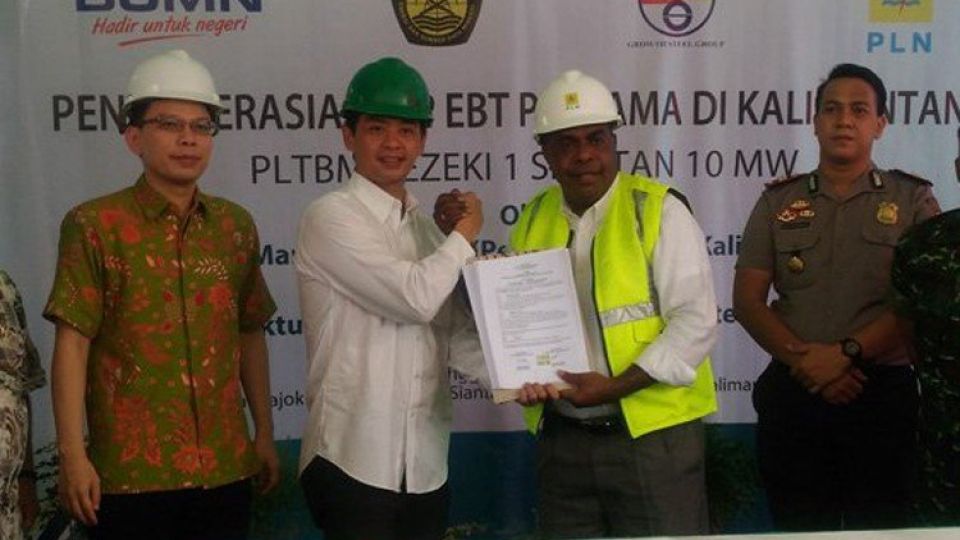February 15, 2023
JAKARTA – Indonesia has committed to cutting carbon to net-zero by 2060, a huge statement by the government to take extreme action into tackling climate change. The government has detailed its roadmap for net-zero, in which by 2050 the number of fossil fuels used for energy would be no more than 25 percent and most of the energy should be based on renewable energy.
As part of reaching net-zero by 2060, Indonesia plans by 2025 to produce energy from renewables as much as 23 percent. This renewable energy is contributed by hydro energy (8 percent), geothermal (7.5 percent), biomass (6 percent) and other renewable energy (1.5 percent).
The information regarding what energy source is considered renewable should be followed by the same categories that the United Nations has determined. Renewable energy sources consist of solar energy, wind energy, hydropower, ocean energy, bioenergy and geothermal energy.
To reach what is supposed to be called net-zero, each source of energy should be distributed properly considering each country’s economic and geographic characteristics. Each country has different advantages and disadvantages to producing renewable energy. Indonesia, which has so many potentials in producing various types of renewable energy, has an advantage in the geographical landscape to smoothly transition our energy source to renewable but we still must keep in mind that Indonesia is still heavily reliant on fossil fuels for energy generation.
From the many sources of renewable energy, the government has created a plan to increase the proportion of biomass in generating electricity. Biomass is considered renewable because its source is from replantable trees, which at the same time absorb carbon.
Indonesia, as one of the biggest producers of wood products, clearly has a huge potential to utilize its energy forestry and wood waste as a source of biomass such as wood chips and wood pellets. From that perspective, Indonesia has an abundant amount of potential to use biomass as one of substitutes for fossil fuels. However, the development and utilization of biomass as an energy source is still very small compared to its potential.
Globally, the biomass market has been on the rise with major developed countries in Asia, such as South Korea and Japan, have significantly increased their usage of biomass as their source of energy generation. South Korea has been the main importer of Indonesian wood pellets with a share of 88 percent followed by Japan with 11 percent. It is expected that in 2023 Japan will increase its import of Indonesian wood pellets through several business commitments made by both countries.
It is very unfortunate that Indonesia has not used biomass as much as other countries as a source of energy knowing the abundance of resources Indonesia has. This leads to our question regarding biomass challenges that keep its potential from soaring.
There are big concerns about using biomass for electricity generation for businesses and that concern is supply reliability. Businesses must be completely certain that the generators would always get their source of biomass sustainably and at a competitive price. It is not uncommon for businesses that the main driving force in choosing the right supply of electricity is the price.
Unfortunately, to cut costs businesses would rather use something that gives them the most value rather than one that is more sustainable. With that in mind, to be able to increase demand for biomass, one of the main issues that need to be addressed is price competitiveness.
In normal circumstances, the coal price for electricity generation is significantly cheaper than that of biomass with coal price is around US$3.1 per Gigajoule while the price of biomass and wood pellet is around $8,1/GJ in 2019 during a stable economy. For the majority of 2022, the soaring price of coal certainly helped the biomass industry to be looked at by businesses as a potential source of energy. This situation, however, would not be permanent if coal prices returned to their original price. For biomass to be competitive, coal prices should be consistently 43 percent higher than wood pellets.
Our recommendations to increase the use of biomass for energy is firstly to develop a sustainable supply of biomass. Indonesia’s main source of supply for biomass is expected to come from energy forestry. State-owned electricity company PT PLN has a partnership with state-owned forestry firm Perhutani for the supply of biomass. The land needed for biomass is estimated at around 430,000 hectares.
Secondly is to increase demand for biomass domestically. We know that the global demand for biomass will keep increasing but it is such a shame if Indonesia could not use biomass as a source in energy generation. With that in mind, a program such as co-firing would certainly increase the demand for biomass domestically. PLN has stated that the co-firing program would require around 8 million tonnes to 16 million tonnes of biomass every year to reach the targeted 6 percent contribution from biomass by 2025.
Lastly is to develop well-planned incentives for biomass businesses. With incentives, there will be more business players producing more biomass. For example, the wood pellet business has started to grow over the past couple of years because of high demand in the global market. The carbon tax would be one form of regulation that could certainly grow the biomass industry. Through the carbon tax scheme, biomass businesses could get subsidies from the allocation of generated taxes to help grow the business and to help the industry operate sustainably.
*****
The writer is an industry and regional analyst at Bank Mandiri.


